Örebro researchers and alumni presented at international sleep conference
On World Sleep Day, sleep researchers and former Örebro students participated in the international Sleep & Health conference in Kristianstad. The conference was organized by the Sleep & Health Network with a grant from Forte.
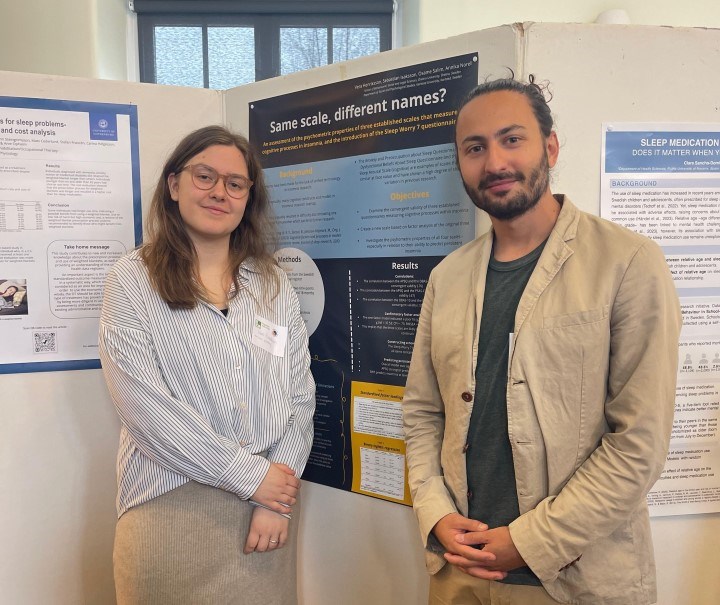
Örebro alumni Vera Henriksson and Sebastian Isaksson presented their psychology degree thesis “Same scale – different names” in which they investigated whether three different questionnaires about sleep cognitions measure the same underlying concept. Their analysis culminated in a new shorter scale with the strongest questions from three questionnaires. The scale can be used to identify people at risk of long-term insomnia. The thesis is based on data from the university’s project “Understanding the development of insomnia”.
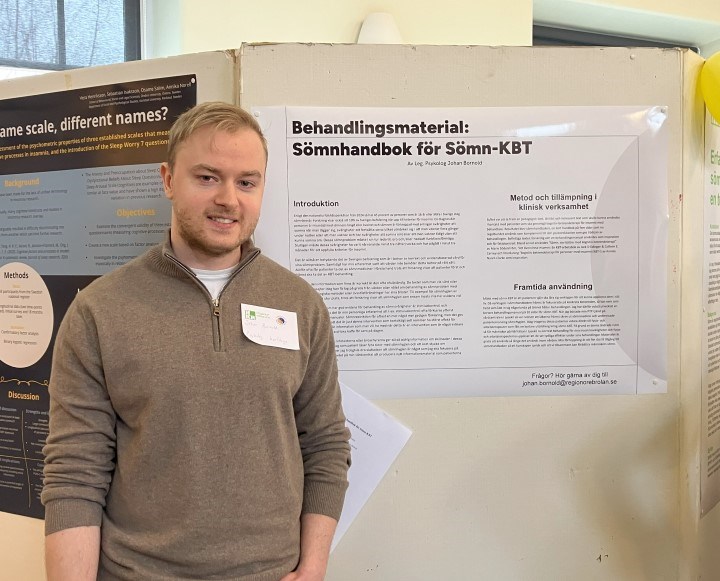
Örebro alumnus and registered psychologist Johan Bornold presented his development work in primary care. Johan is passionate about spreading knowledge about cognitive behavioral therapy for insomnia in primary care and has produced an information brochure for patients. In the future, he will work in Karlskoga.
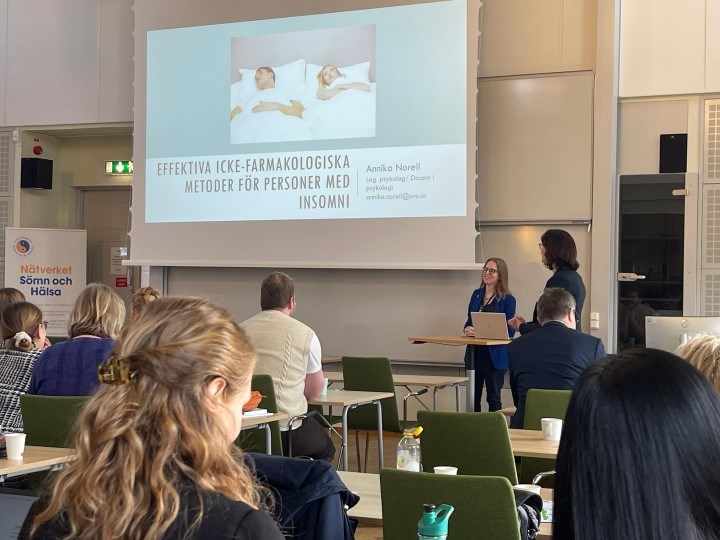
Associate professor and registered psychologist Annika Norell gave a lecture on evidence-based interventions for insomnia. She emphasized the importance of understanding how long-term sleep problems arise in order to convey the right advice to patients.
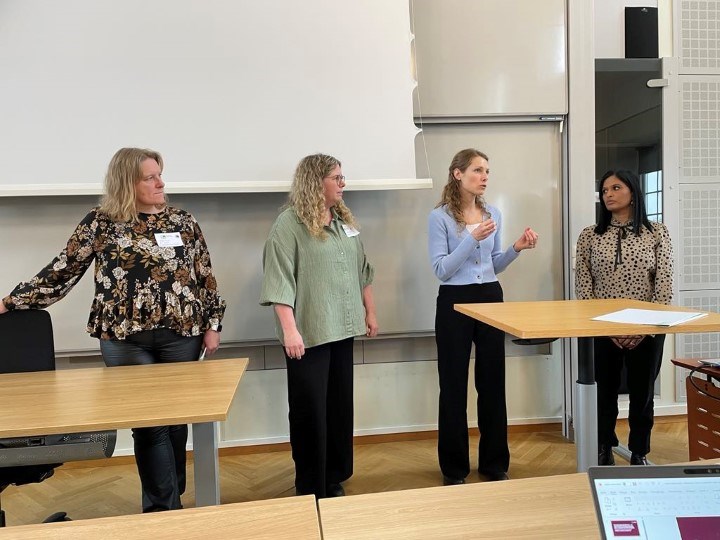
PhD Serena Bauducco presented the collaborative project "Teenage Sleep" in which Örebro University collaborates with Kristianstad University, Karolinska Institute and schools around Sweden. Serena described how teenagers' lack of sleep is due to many different factors, some of which can be influenced by school interventions.
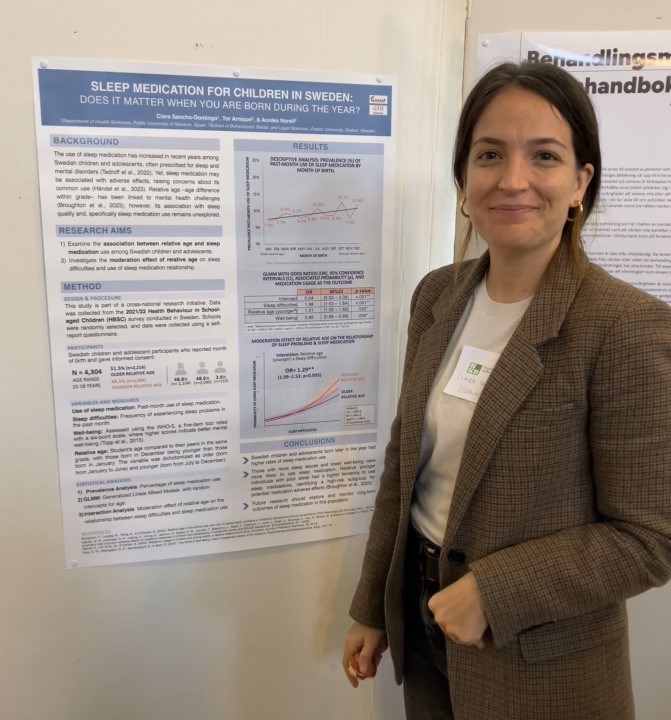
Sleep Health's international partner Clara Sancho Domingo presented research on how Swedish children born later in the year are at higher risk of being prescribed sleep medication. Whether this is due to a greater vulnerability to sleep problems or because late born children are assessed differently is unclear, but previous Swedish research has shown that boys born late in the year are significantly more likely to be diagnosed with ADHD. Being relatively younger than the others in your class could affect how you feel and also how adults perceive your difficulties.
